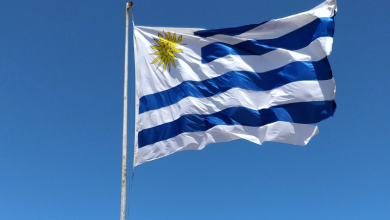Climate Crisis Fuels Spread of Mosquito-Borne Diseases in Europe

As the world grapples with the consequences of climate change, an unexpected and alarming trend is emerging in Europe: the spread of mosquito-borne diseases. These tiny insects, once confined to tropical and subtropical regions, are now infiltrating new territories due to global heating. In this editorial, we delve into the reasons behind this phenomenon, the diseases at play, and the urgent need for preparedness.
The Culprits: Aedes Mosquitoes
The Asian tiger mosquito (Aedes albopictus) is the primary culprit. This invasive species, known for transmitting dengue fever, has become established in 13 European countries. Italy, France, Spain, and Greece are among the nations grappling with its presence. Dengue, once a distant threat, is now a reality for Europeans, with the number of reported cases increasing eightfold in the past two decades.
Malaria’s Unexpected Resurgence
Another mosquito, Anopheles maculipennis, is causing concern. Historically associated with malaria, this species had retreated from Europe. However, rising temperatures and changing weather patterns have allowed it to regain a foothold. Malaria, a disease thought to be eradicated in many European countries, is making a comeback.
Climate Change as the Catalyst
Global warming has extended the mosquito breeding season. Longer hot summers provide ample opportunities for these disease vectors to thrive. As frost-free periods increase, mosquitoes find more time to reproduce and transmit illnesses.
Droughts and Floods
Climate breakdown brings extreme weather events. Droughts create stagnant water sources, ideal breeding grounds for mosquitoes. When floods follow, these insects spread rapidly, carrying diseases to new regions.
The Human Toll
Mosquitoes are the world’s deadliest creatures, responsible for over one million deaths annually. Dengue, malaria, and other diseases take a toll on human health, straining healthcare systems and affecting communities.
Immunological Naivety
As mosquitoes invade previously unaffected areas, people with no prior exposure become vulnerable. Immunologically naive populations lack immunity, making them susceptible to severe infections.
Preparedness and Mitigation
European countries must enhance mosquito surveillance and control programs. Early detection and targeted interventions are crucial to prevent outbreaks.
Public Awareness
Educating the public about protective measures is essential. Using insecticide-treated bed nets, sleeping in air-conditioned rooms, and eliminating standing water sources can reduce exposure.
Conclusion: A Race Against Time
Europe faces a race against time. Governments, healthcare professionals, and citizens must collaborate to combat mosquito-borne diseases. Preparedness, research, and public awareness are our best defenses.
A Wake-Up Call
The spread of these diseases serves as a wake-up call. Climate change threatens not only our environment but also our health. It’s time to act decisively and protect our communities from this growing menace.
As Europe grapples with the unexpected consequences of climate change, the battle against mosquito-borne diseases becomes critical. Let us heed the warning signs and work together to safeguard our future.



